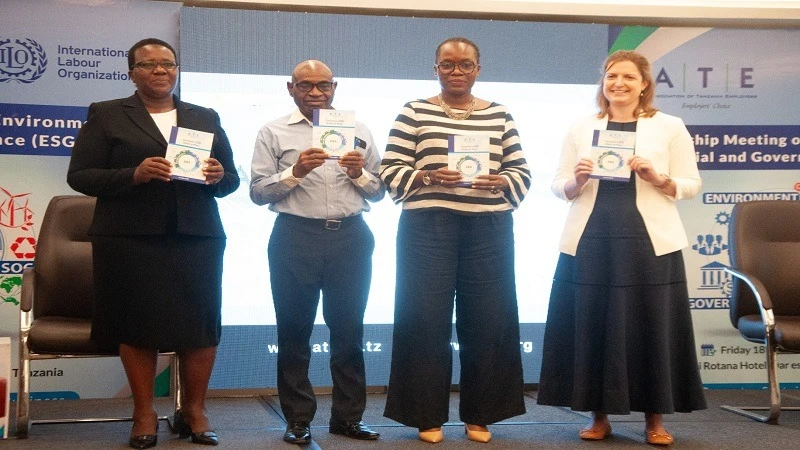ATE study uncovers inadequate awareness on ESG sustainability

A STUDY exploring Environment, Social and Governance (ESG) landscape in Tanzania has uncovered eight key challenges with a significant barrier being low awareness about sustainability.
The study titled ‘Tanzania‘s ESG State of Play’ conducted by the Association of Tanzania Employers (ATE) highlights the need for a cultural shift in how businesses perceive ESG alongside addressing fragmented awareness and sector-specific disparities.
ATE Chief Executive Officer Suzanne Ndomba-Doran said in Dar es Salaam yesterday at the launching ceremony that the study aimed to help businesses navigate evolving expectations and standards in ESG practices.
She said the study was conducted across 10 key revenue-generating sectors, including agriculture, extractives, financial, tourism and manufacturing
She named other challenges as non-uniform understanding of ESG across Tanzanian firms, resulting in varying levels of awareness and comprehension and differences between local and multinational firms.
Other multinational companies demonstrate greater implementation of ESG practices while local firms lag behind, larger companies tend to embrace ESG more compared to smaller ones and sector-specific impacts.
She said the identified areas of economic production are more impacted by ESG concerns and exhibit greater awareness and implementation of ESG practices.
Ndomba-Doran emphasized the need for a cultural shift towards sustainability whereby ESG is viewed not merely as a compliance issue but as a fundamental aspect of business.
She pointed out that a two-pronged approach is required to solidify ESG practices in Tanzania to strengthen regulatory frameworks and ensure fit-for-purpose ESG compliance and mindset shift.
The event was attended by representatives from the International Labour Organization (ILO), the National Environment Management Council (NEMC), manufacturers, civil society organizations (CSOs), and non-governmental organizations (NGOs).
Ndomba-Doran stressed that ESG principles have become increasingly important as they influence company practices related to environmental sustainability, social responsibility and corporate governance.
Jamal Baruti, acting Environmental Manager (Compliance and Enforcement) at NEMC, said the study provides the status of the environment and how to conserve the environment and make sure businesses are sustainable.
“We drive towards a voluntary culture and mindset shift which looks to embed ESG sustainability in education curricula, awareness raising and using good practices to demonstrate ESG as a driver for businesses.
Top Headlines
© 2024 IPPMEDIA.COM. ALL RIGHTS RESERVED






















